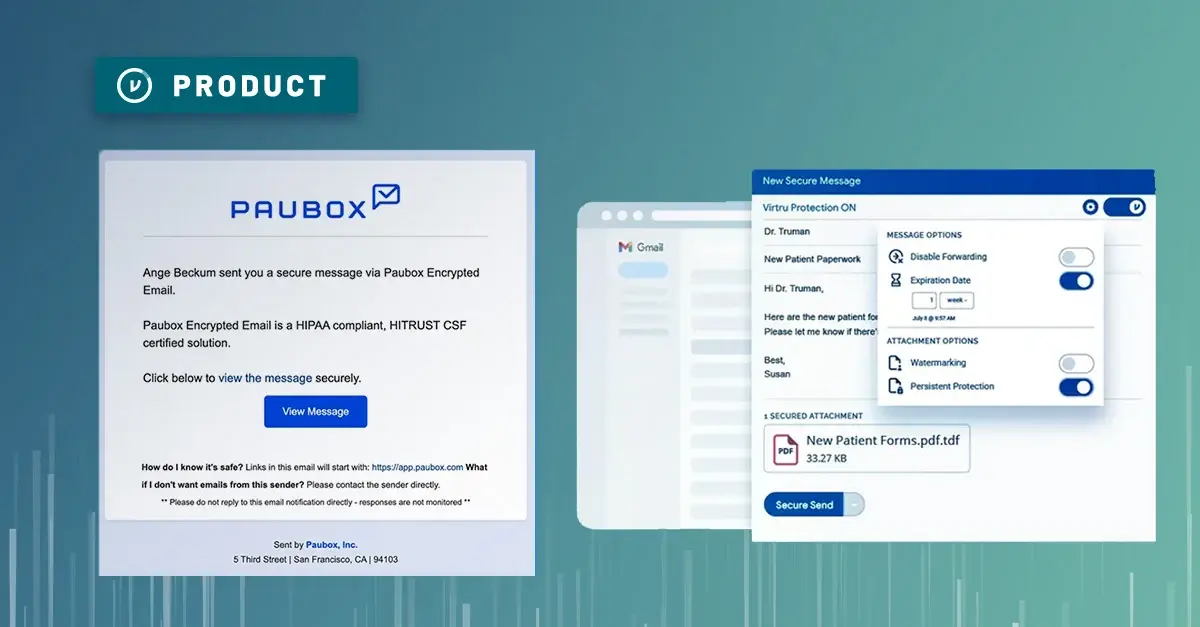Florida lawmakers have unanimously advanced a bill through committee that would require social media platforms to "provide a mechanism to decrypt end-to-end encryption when law enforcement obtains a subpoena." While the intention behind this legislation—protecting minors online—is laudable, the technical approach is deeply problematic from a security perspective.
At Virtru, we've long championed the principle that strong encryption is the cornerstone of digital privacy and security. These recent developments concerning SB 868, the "Social Media Use by Minors" bill, raise significant concerns for not just Florida constituents, but also data security professionals and privacy advocates alike.
The Perpetual Problem with Backdoors
It has been pointed out time and time again: Creating encryption backdoors is akin to installing a master key for a building's security system. Once created, it can potentially be used by anyone who discovers it, not just the intended authorities. This fundamental security principle cannot be circumvented, regardless of good intentions.
The cybersecurity community has consistently maintained that there is no such thing as a backdoor that only "good actors" can access. Any deliberate vulnerability introduced into encryption systems inevitably weakens security for all users.
If there is one positive to call out with regards to backdoor access, it's that the general public are becoming more aware of the pitfalls associated with them, thanks to a few other recent high profile news stories.
Backdoors Breaking News
We need look no further than the Salt Typhoon incident to see the dangers of backdoors in practice. In what some view as the biggest security breach in American history, Chinese state-sponsored hackers exploited backdoor mechanisms in telecommunications networks to conduct widespread espionage operations. What was initially designed as an access point for law enforcement purposes became a vulnerability that malicious actors leveraged to compromise sensitive systems across multiple sectors.
Similarly, the standoff between the UK government and Apple illustrates a global push from authorities seeking encryption exceptions. Under the Online Safety Bill, the UK government demanded that tech companies create mechanisms to scan encrypted messages for prohibited content. Apple strongly resisted this pressure, arguing correctly that such capabilities would fundamentally undermine the security guarantees provided by end-to-end encryption.
The case between Apple v. The UK ultimately ended in Apple removing its Advanced Data Protection for iCloud capabilities from the UK market. It’s a lose-lose situation for the UK–but would have been an even bigger loss for Apple to cave and a large-scale international breach to occur.
This tension between government demands and security realities is playing out worldwide, with the Florida bill representing just one example here at home of a dangerous globl policy trend.
Technical Realities vs. Political Desires
The Florida bill suggests that companies can somehow create "responsible" backdoors that only authorized parties can access. This misunderstands the technical reality of encryption. As security professionals, we know that:
- Any systematic weakness in encryption can potentially be exploited by unauthorized parties
- Companies that cannot access their users' encrypted data (by design) cannot simply engineer a way to do so without compromising the entire security model
- The requirement to respond to subpoenas rather than court-authorized warrants lowers the legal barrier for accessing private communications
The goal of protecting young people online is one we all share. However, weakening encryption actually makes minors more vulnerable by exposing their private communications to potential interception by malicious actors.
The Broader Implications
If enacted, this legislation would set a troubling precedent that could ripple beyond Florida's borders. It would force companies into an impossible position: either comply with requirements that fundamentally compromise security or withdraw encrypted services from certain markets.
Either outcome would represent a significant step backward for digital security and privacy.
At Virtru, we believe that protecting sensitive data requires robust, uncompromised encryption. We recognize the legitimate needs of law enforcement but maintain that creating systemic vulnerabilities is not the answer. Instead, we advocate for approaches that preserve both security and appropriate oversight.
Strong encryption isn't just a technical feature—it's an essential protection for all digital citizens, including the minors this legislation aims to protect.
/blog%20-%20case%20against%20florida%20backdoor%20bill/case-against-florida-backdoor-bill%20copy.webp)

/headshot2.jpeg)




/blog%20-%20HIO%20Maya%20HTT/Maya-HTT-Level-2-lessons%20copy.webp)

/blog%20-%20cmmc%20level%203/CMMC-LEVEL-3.webp)

/blog%20-%207%20Healthcare%20Vulnerabilities/7-hipaa-vulns.webp)
/blog%20-%20please%20delete%20that%20email.%20domain%20wide%20protection/please-delete-that-email.webp)
/blog%20-%20next%20breakfast/next-breakfast-2.png)